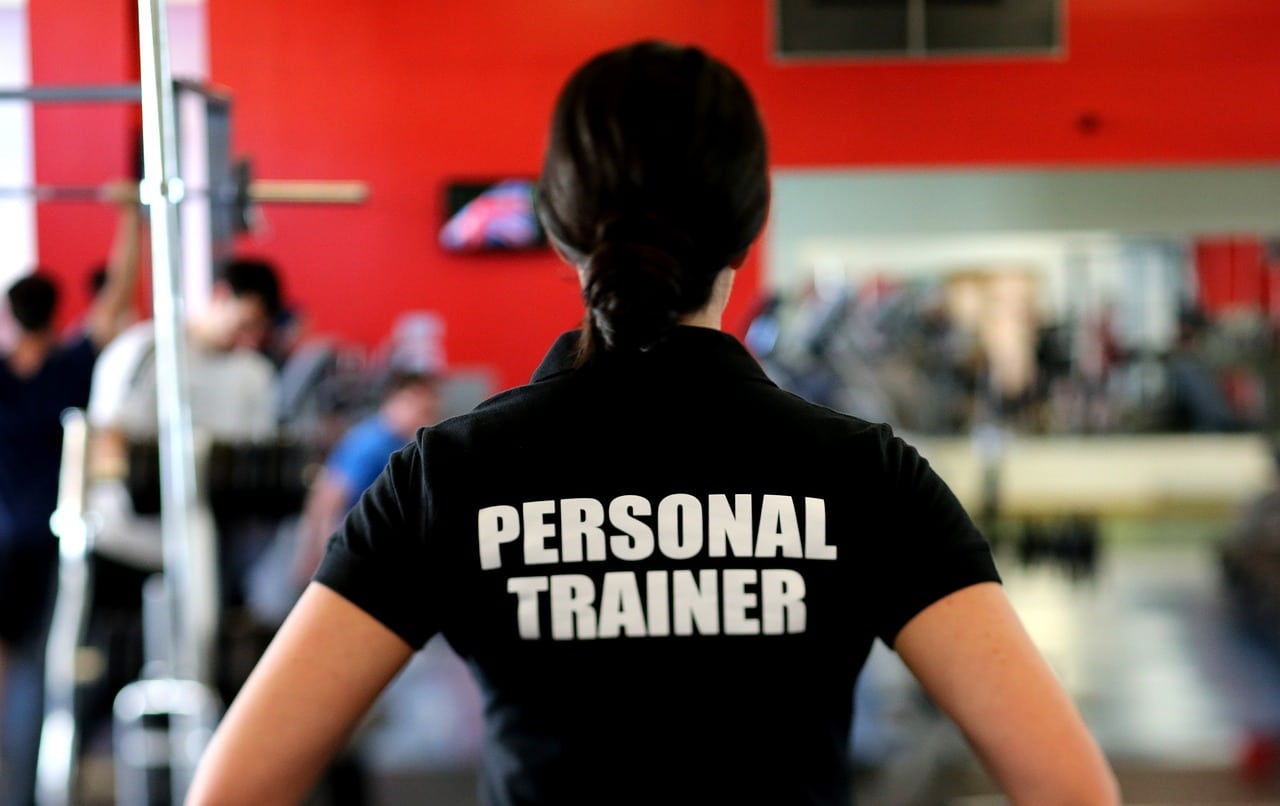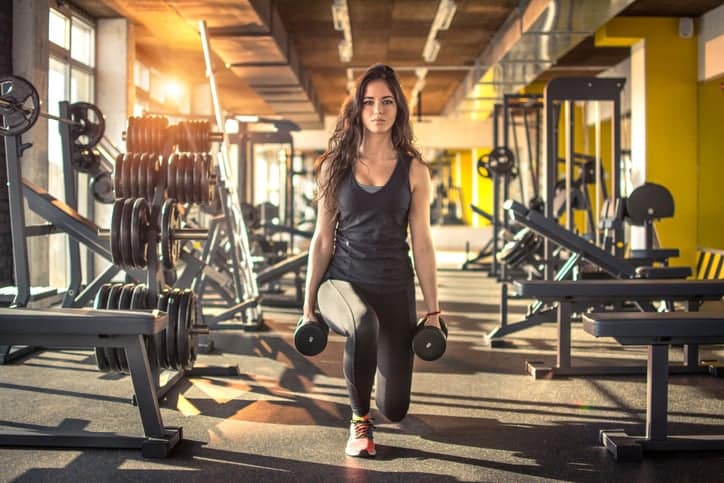Inside the Mount Hood Athletic Club near Portland, Ore., a group of 20 kids weaves through a series of cones dribbling basketballs. When personal trainer Trevor Hayward blows a whistle, the kids go from dribbling to passing, and move in for layups.
It’s part of a youth sports class that introduces kids to basketball, soccer, racquetball, volleyball, and strength and conditioning exercises to improve speed, agility, and quickness, and prepare them to play team sports in school or local leagues.
Ever thought about teaching youth fitness or youth strength conditioning classes?
An estimated 45 million kids (ages 5 to 18) play youth sports, according to recent survey data published in the Open Access Journal of Sports Medicine.
And that includes sports like basketball, football, hockey, swimming, tennis, running, volleyball, soccer, track and field, wrestling, and gymnastics.
After-school programs are by far the most popular place for kids to participate in youth sports, but many also play in private leagues and clubs.
With that many kids playing youth sports, there are ample opportunities to help kids develop sport-specific skills, or simply improve their athletic ability to excel.
Here are a couple of examples:
- After playing college baseball in the midwest as a catcher, Jerrod White combined his love for the game and education. He turned down offers to play for minor league teams, the Alexandria Aces and the Kansas City T-Bones. And instead, launched White Brothers Baseball, with his brother Jeff White, near Springfield, Mo., offering private lessons and camps to teach kids how to play the game.
- Los Angeles native, Ron Hightower was playing tennis with his dad and other pros by the time he was four years old. That early education eventually helped him make the top 100 list as a pro, and compete in Wimbledon. He decided to pay it forward when he launched the Hightower Tennis Academy to help young tennis players master the game.
- And inside the Mount Hood Athletic Club, Trevor Hayward hosts the six-week youth sports class a couple of times a year. He also coaches youth basketball in private and small-group training sessions.
Find Your Niche in Youth Sports
You might be surprised to learn that 63 percent of families with school-age kids spend an estimated $100 to $499 a month on youth sports. And another 18 percent spend up to $999 a month on youth sports fees, uniforms, travel, gear, and private coaching, according to recent survey data.
That’s great news if you’ve been thinking about becoming a youth strength and conditioning coach.
{{cta(’93ef7fd8-adea-4941-94f9-a8b1316dab14′)}}
Be a generalist or focus on one niche? It’s possible to be a successful youth fitness or strength conditioning coach with a general approach to training. Hayward uses his youth sports class to book small-group and one-on-one sessions later on to help kids fine-tune their basketball skills.
But more often than not, by focusing on one specific niche (e.g., baseball, tennis, soccer, running…), it will be easier to find youth to train, build your reputation, and keep kids and their parents coming back for more.
How to Become a Youth Fitness or Strength Conditioning Coach
If you want to help kids develop skills in a specific sport, or simply improve flexibility and get stronger and faster, it’s important that you:
- Like working with kids
- Understand how to motivate them
- Know how to get results
- Keep kids safe
- Enjoy building relationships with parents and youth
- Know the rules and physical demands of youth sports
Get certified. While it’s not a requirement, getting certified as a youth fitness or strength and conditioning specialist will help you land clients. It’s a great way to establish credibility. And if you want to run youth fitness or strength conditioning programs at a gym, certification will likely be required.
{{cta(‘0da87957-461d-4dae-8be0-05fa338aa1ab’,’justifycenter’)}}
Complete youth-specific training. Take a class or complete a program on youth sports and strength and conditioning. Most personal training certifications are geared toward helping you train adults. A lot of the principles of training are the same when you’re working with kids, but they’re still a different population with different needs.
Learn how to create training programs for youth. If you’re already a trainer, you’ve probably written hundreds of workout plans…for adults. Have you written any training programs for youth?
Young kids will benefit the most from speed, agility, and quickness workouts. But as you move into sport-specific training for older kids, you’ll need to know their sport well enough to come up with workout plans that get results like:
- Jump higher to shoot a basketball or block a volleyball
- Run faster to compete in cross country or track and field events
- Develop upper-body strength and endurance to dominate water polo
- Throw harder and with more accuracy to play baseball
- Improve swim stroke technique to move through the water faster
- Know your way around the weightroom and exercises that are age-appropriate
Market Your Services
It’s going to be tough to engage parents and get youth clients to participate in your strength and conditioning programs if they don’t know you’re out there. So you have to market your services and be visible, especially at first. As you provide kids and parents with a positive experience and get results, you’ll likely get referrals. Some ways to market your services:
- Offer a free fitness assessment or youth coaching session
- Host a free or low-cost youth sports clinic
- Be a sponsor for youth sports in your area
- Build relationships with coaches and parents
These marketing strategies will give you opportunities to talk about strength and conditioning for youth sports, showcase your skills, and land clients.
Make a difference
Being a youth fitness or sports strength and conditioning coach is a great way to use your skills to help kids build confidence and motivation, excel in a sport, and prepare to be competitive in school sports, a club, or a local league.
If you would like to learn more about youth fitness and strength and conditioning, the best place to start is with a certification. For example, AFPA offers a Youth Strength and Conditioning Specialist, as well as a Youth Fitness program. Follow your passion and turn it into your next career move.
{{cta(‘e31b1793-085e-4b69-b9cb-e83795b06f58′,’justifycenter’)}}



